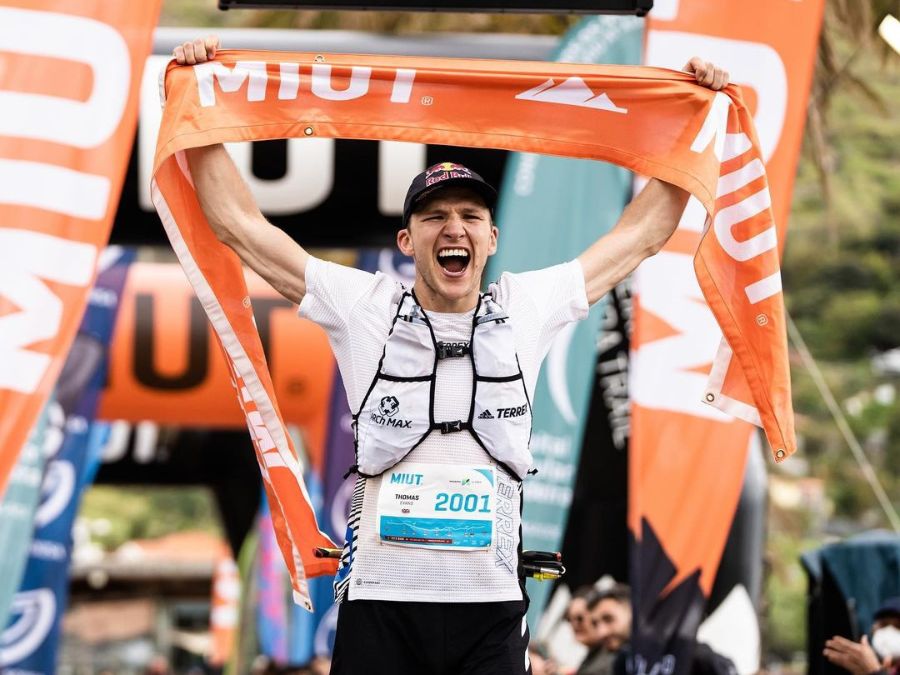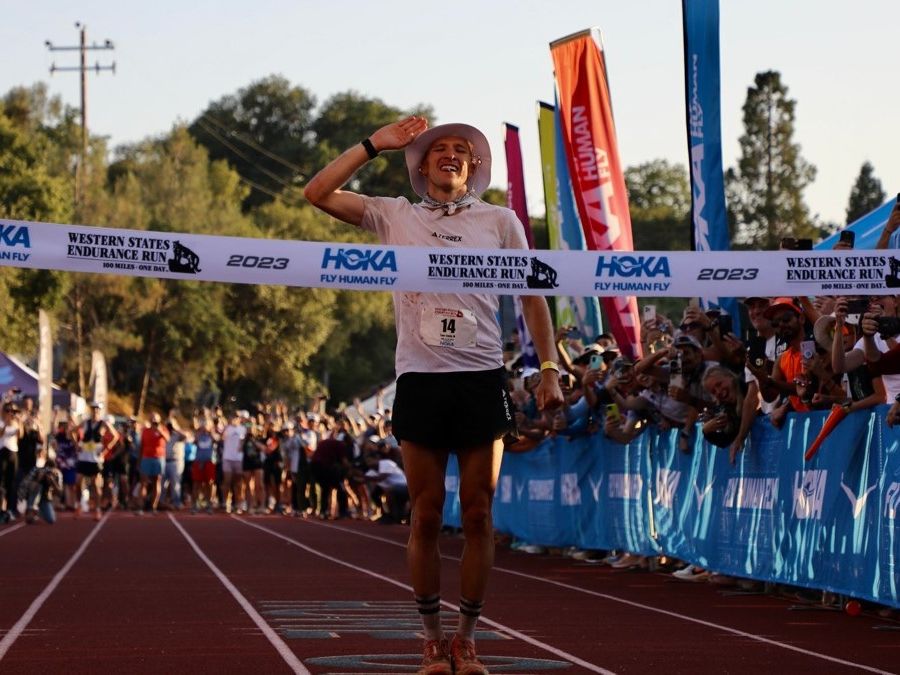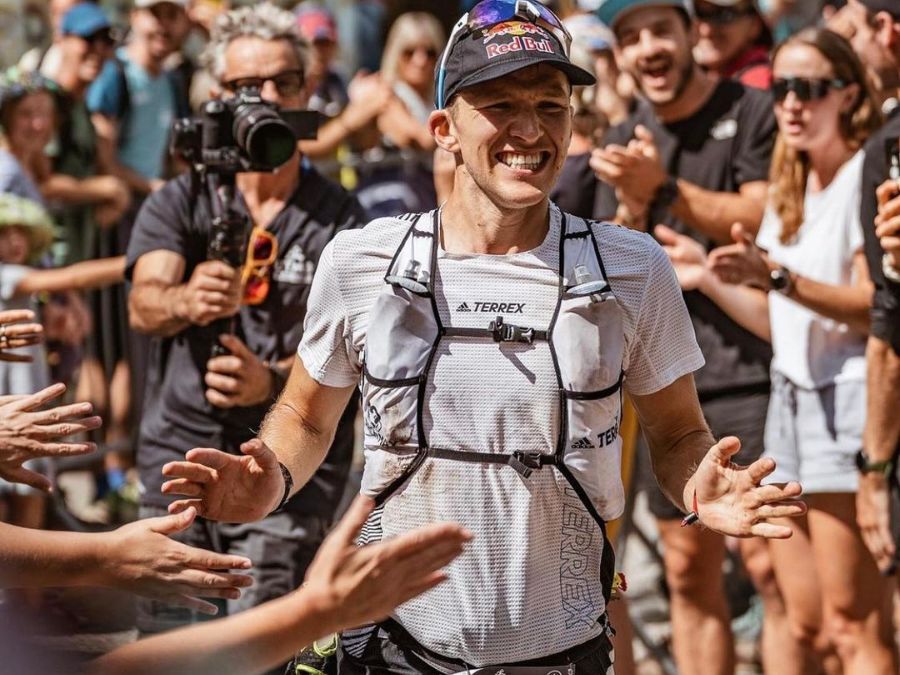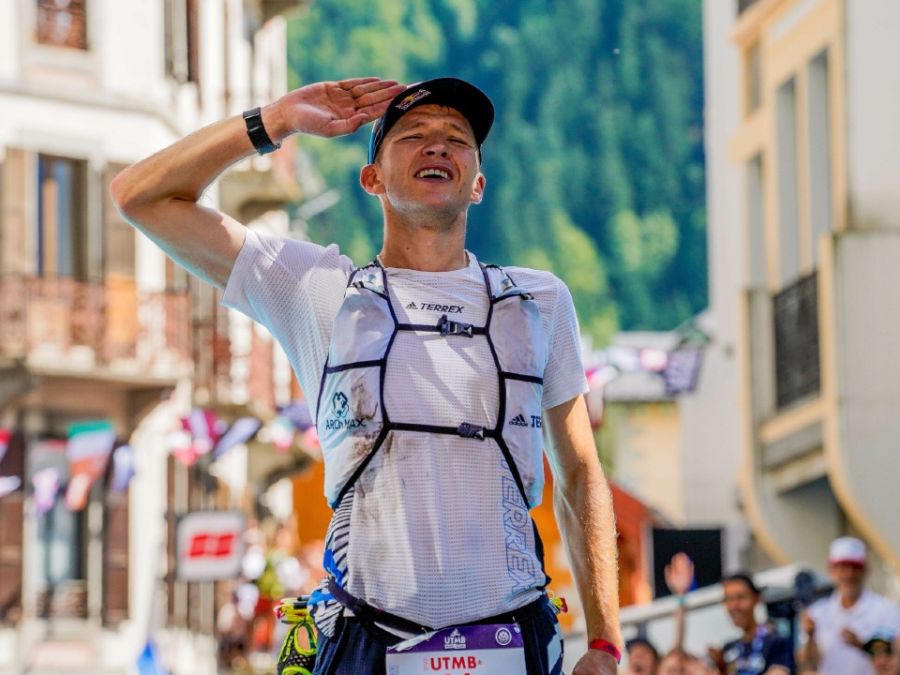In our RT Snap Q&A series, we’ve had the privilege of interviewing some of the world’s best runners, delving into their extraordinary journeys, celebrating their achievements, and exploring the unwavering dedication that defines their careers.
Tom Evans
- Born: February 3, 1992
- Nationality: United Kingdom
- Ultrarunning
Tom Evans skyrocketed to ultrarunning fame in 2017 with a groundbreaking third-place finish at Morocco’s iconic Marathon des Sables. Entering the grueling 251-kilometer race on a dare, Evans became the highest-placed European in the event’s history, just a year after winning his first ultramarathon, the 2016 Beacons Ultra. This remarkable start signaled the rise of a new endurance icon.
In 2018, Evans solidified his reputation as a world-class ultrarunner. He dominated the 101-kilometer CCC race at Ultra-Trail du Mont-Blanc (UTMB), clinching first place in one of the sport’s most prestigious events. That same year, he shattered course records at both the Coastal Challenge Costa Rica and the UK’s South Downs Way 50, underscoring his versatility and exceptional talent.
After winning the Ultra-Trail World Tour in New Zealand in 2020, Evans faced a setback in 2021 due to a stress fracture requiring surgery. Yet, his resilience shone through with a spectacular comeback in 2022, winning the Madeira Island Ultra Trail in Portugal. Evans’ story of grit and achievement continues to inspire runners and fans, solidifying his place among ultrarunning’s greatest.

Personal Bests
- 5 Kilometres Road – 13:41
- Half Marathon – 1:03:14
- 10 Kilometres Road – 29:44
- 10 Miles Road – 49:38
- 5000 Metres – 14:14.56
- Marathon – 2:26:07
- 10,000 Metres – 30:39.14
RT: How has your military background influenced your approach to training, discipline, and mental resilience in ultra-running? Are there specific lessons from your Army experience that you rely on during races?
Tom: My time in the military has defiantly shaped my mental approach to my day to day life. I think mostly with integrity- knowing that I am making the right decision for my goals. That may be in making sacrifices to not see friends and be away on training camp. Or going and doing that run in the cold, wet and dark UK weather. No real specific experiences that I pull from but for me it’s the ability to keep going under the circumstances and try to achieve what I have set out to do.
View this post on Instagram
RT: Congratulations on your monumental win at the 2023 Western States 100! After placing third in 2019, what changes did you make in your training, strategy, or mindset this year to ultimately take the top spot? Could you share any pivotal moments during the race that contributed to your victory?
Tom: Thanks very much. WSER in 2019 was my first 100 mile race and I had much to learn. I have always liked testing myself and pushing myself to the limit. Training wise, I spent 2 months in Flagstaff living with the Halls (both professional trail runners) and had the best time. The training itself was a bit more specific and dialled in. My mindset is ‘train for the demand of the event’ so with my coach, Scott Johnson, we broke down everything we thought we needed to do to put myself in with a chance. We did more threshold training and implemented double threshold training and got up to to some good volume.

RT: As an athlete who focuses on recovery and cutting-edge training methods, how do you structure your recovery routines and nutrition, especially after intense events like UTMB or Western States?
Tom: After the big races like this I don’t really focus too much on recovery. I like to listen to my body and see what I need to do. I find that always being so focussed can be really draining mentally. The recovery from a long race takes time for both the physical but in my opinion the most important recovery is for your mind. We put so so much effort into these training cycles and races that sometimes you just need to take a step back and relax.
RT: Every athlete faces challenges, and you’ve spoken about the ups and downs you’ve experienced, from injuries to tough race outcomes. How have you managed to stay focused and motivated through setbacks, and are there specific strategies or mental shifts that have helped you come back stronger each time?
Tom: I have some long term goals that I am always working towards. They are not all pure running performance goals. I believe it’s really important to be able to have some focus outside of training and racing in order to achieve your full potential. Sometimes things don’t go your way and you have to deal with that. Whether it’s injuries or anything else, you have to play the cards you’re dealt. The more experienced I have become, the more I realise how to deal with this. Don’t see injuries at time you’re not training, see it as time you have back to improve something else.
View this post on Instagram
RT: Your consistent, high-level performances in ultra-distance races suggest a strong and specialized training regimen. Could you walk us through a typical training week leading up to a major race like the Western States 100?
Monday: Easy / recovery day
Tuesday: double threshold. AM: 10 x 1km. PM: 5 x 5 min uphill at at 25% incline
Wednesday: AM: 3hr trails PM: Gym
Thursday: AM: 90 mins easy. PM: 90 mins easy
Friday: AM Trail tempo. PM: long bike
Saturday: Long trail 3-6 hours
Sunday: Long trail 3-6 hours.
View this post on Instagram
RT: What role do community and support systems play in your journey? Are there specific individuals or groups you rely on for motivation and guidance?
Tom: It’s great that you have such a strong, collaborative performance team supporting you. The 360-degree approach ensures that every angle of your training and performance is covered. Your internal motivation, driven by your goals, is a powerful force—it sounds like you have a clear sense of purpose that keeps you pushing forward.

RT: What advice would you give to aspiring ultra-runners who want to improve, stay motivated, and develop the resilience needed for such long distances? Are there any specific practices or mindsets you’d recommend that helped you along the way?
Tom: I think by setting goals that really motivate you is the best way to start. This will give you your ‘north star’ and you can then build a plan around that. I use a system called ‘chunking’ that basically breaks everything down into small bite size/manageable chunks so things don’t seem too far away or daunting. When things get tough, which they will, I rely on my ‘why’. Then from that point it’s easy to get my head down and keep grinding.















